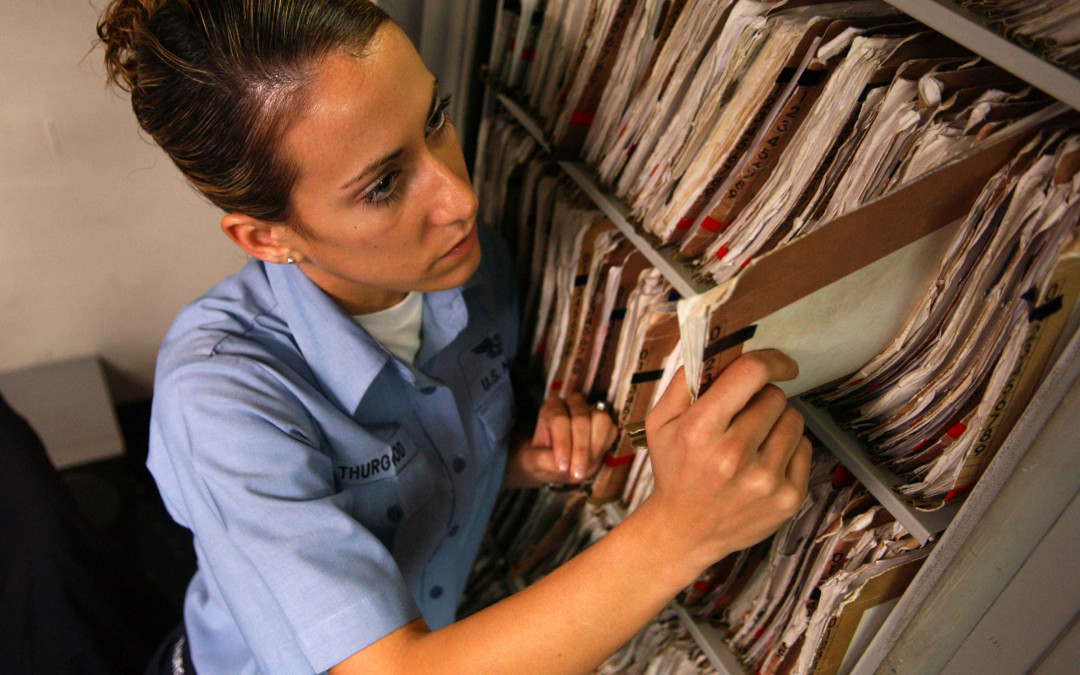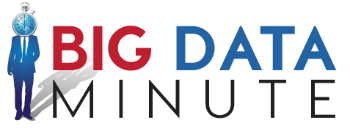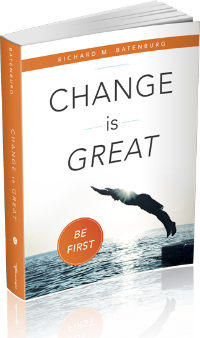
by Tara Buck | Nov 2, 2015 | Big Data, Predictive Analytics
The music industry has gone through huge changes over the last 10 years, and finding a “fair” way for artists to make money for their work has become something of a project. CD sales plummeted ever since digital downloads became so popular and readily available. Recently, digital downloads have been steadily declining as music-streaming platforms such as Pandora, Spotify, and Apple Music have gained a rapid following.
Simply put, the industry is changing. So, how can we help artists receive the compensation and recognition they deserve? The answer to that lies within big data.
Pandora’s recent acquisition of Ticketfly gives us a glimpse at the future of the streaming industry- a future that is evolving to include live music. And that’s where the money is- if Pandora can manage the big data.
When streaming was introduced, it gave previously unheard artists a new opportunity to be heard and put the listeners in the driver’s seat. Streaming companies may now be able to drive those changes by using data and directing listeners straight to live events.
Traditionally, ticketing companies have used purchased data along with associated demographic data to target their customers for upcoming events. That should be enough right? Wrong. To accurately use predictive analytics to target these music lovers, streaming companies need to use their years of data from their millions of users. This data is rich with usable information, whether it be demographics from registration, what artists one skips, or what time of day they prefer certain music. Combining this with fan data from ticketing companies benefits both the artist and the listener. So far, Pandora is on the right track with this.
Selling concert tickets to fans based on the types of music they enjoy is not a breakthrough advancement in this industry. However, what can act as a radical change is going to revolve around what data is being used and in conjunction with what.
With Pandora’s recent acquisition, they will not only be able to suggest artists similar to those you already like, but they will also be able to notify you of upcoming concerts that they predict you will like.
By using big data to grow and monetize these fan bases, more live event tickets will be sold and artists will have the opportunity to gain the credit they deserve.
Click here to learn more about how big data can help solve your problems.

by Tara Buck | Oct 18, 2015 | Big Data, Business Optimization, Measuring Results, Save With Data
There is data that can be found in every industry and profession out there- from healthcare to professional sports. If the legal profession is meant to be involved in all of these as well, one question comes to the front of my mind: how can big data help the legal profession?
Let’s start of by stating that there is so much data being collected around the world, and depending on how it is stored, catalogued and indexed, it can take a person days or weeks to sort through. Thankfully in today’s world, however, we have the luxury of programs and computers- computers that can go through this data instantly. Having these programs and applications accessible to us can instantly bring down the cost of analyzing the data, provided you get it into the right format.
Let’s take an example of a case involving product liability. There is a product that is defective. Where does big data come in?
Well now you have all of the records from the creation of that product: the memos, the mockups, and drawings. You have everything that had to do with the end product. You may even have the reviews and testimonials- good or bad. What would have taken months to go through by hand may now take an hour with some computer application. This is because the computer is going to search for certain words, and if the attorney picks the right words and the data is set up in the right format, the attorney now has everything they need at their fingertips. And all in a matter of minutes!
One may think it would be enough as an attorney to go out there and say ‘this product is defective and here are 500,000 complaints about it.’ The reality is that you can actually go one step further with the tools that are now given to us. The attorney can go back into all of the 500,000 complaints and determine what the common component is- and maybe that common component is user error. Then the tables suddenly turn and it is not the product- it is the user!
Big data can now help lead attorneys to answers that they may have never gotten a chance to come to with time and money constraints. Whatever side may be benefitting, information is power and big data is providing just that!

by Stephanie Rabinowotz | Oct 16, 2015 | Business Transformation
The student loan debt in the United States has reached $1.2 trillion and the average graduate is released into the real world $24,000 in debt. Does it sound like student loans are becoming a problem? I think it is safe to say, YES!!!!
As a somewhat recent graduate it is sad to see my generation accepting student debt as just a way of life. People constantly say, ” It”s good debt”. What?! There is nothing good about owing banks thousands of dollars. Not to mention that many undergraduate degrees these days do very little to actually land recent grads career worthy, well paid jobs. Many degrees don’t get graduates anywhere unless they go to grad school as well. It is difficult enough for a new graduate to learn how to live on their own, paying rent and bills, only to tell them they need to pay off their student loans quickly or else interest will bury them alive. Oh and this is all while making about a $30,000/ year salary.
Now that my rant is finished we can discuss if there is a possible light at the end of the tunnel for this crisis. Thankfully there are some new Startups that are helping re think the way student loans work. Traditionally student loans are granted based on credit score and have a very strict repayment schedule. New companies like Earnest are going against the lending rules and not considering credit scores when accepting borrowers. Instead, the new company looks at a borrower’s bank records, credit cards and even social media profiles to decide if they are a trustworthy person.
You may be wondering how a company can decide what makes someone a trustworthy person? Well, Earnest uses a big data approach, looking at many different parts of an individual rather than simply one credit score that may not fairly represent that person. Earnest takes the data a potential borrower provides and puts it into their underwriting program to find what they call the “highest quality clients”. Earnest’s philosophy is not over charging financially responsible individuals with high interest rates just because they wanted an education. Earnest also allows borrowers to pay in a much more flexible fashion, choosing the length and frequency of payments as well as the option of fixed or variable interest rates.
The reason Earnest can offer lower interest rates and flexible payment schedules is because of big data. The company uses big data to make quicker, more informed decisions on who to lend to, ultimately saving the client money by skipping and extra labor or middle men. It never ceases to amaze me how many different areas big data can be used in to create efficiency and reel in savings. Maybe if other lending companies adopted the big data approach to determine which of their clients are financially responsible then they could charge them less interest. This would be a great incentive for people to pay their loans on time every month!
Let us know what you think! Student loans are a heavily debated topic, we know you have an opinion, and odds are you have student debt as well!
Tell us your thoughts on our Facebook PAGE!

by Stephanie Rabinowotz | Oct 5, 2015 | Customer Satisfaction
In the medical field, time can be crucial. Think about an emergency room, doctors don’t have time to open up a book or research a patient’s symptoms when they are bleeding out on the table. A doctor must make a quick decision based on the information at hand. What if our doctors had quicker access to information? Information that is up to date and accumulated from other cases all over the world? Could we potentially save more lives if Big Data could provide doctors with the information needed to make faster, more accurate decisions?
Yes.
This is already happening as companies such as Cerner have taken their expertise in healthcare IT and combined it with the power of Big Data. Cerner and Cloudera have created a platform in which healthcare records and patient information can be collected and standardized. The more information we can gather and make sense of, the better we can understand symptoms and prescribe treatments. This tool can be used by doctors to quickly diagnose symptoms such as a blood disease and treat it accordingly rather than have to run multiple tests to reach the same answer. If our doctors can diagnose patients with less tests, the cost of a hospital visit will decrease dramatically.
Not only is the use of Big Data in healthcare records saving lives but it also has the capability of saving patients a lot of money. To learn more about how the healthcare system is utilizing Big Data CLICK HERE!

by Stephanie Rabinowotz | Sep 30, 2015 | Save With Data
Have you been noticing how the internet seems to know you? It is almost like you two are friends, knowing each others likes and dislikes. I guess it is kind of a one sided relationship, as the internet probably knows much more about you than you know about it. But that is a much more creepy analogy so let’s stick with the friends one.
Friends help each other out and always suggest products or places to each other, sharing information that would benefit one another. This is sort of what happens with the internet. The internet keeps track of what you buy or look at so it knows what products or interests to advertise to you.
Personally I find this saves me a lot of time. I have recently been planning a wedding and Amazon became my best friend. We would get together everyday. Amazon would listen to what I wanted to buy and then recommend other products I was completely forgetting about that went perfectly with the theme of my wedding. Amazon made it very quick and easy recommending the best products and even remembering my information so I didn’t have to find my credit card number for every purchase!
The reason Amazon is such a good friend is because of Big Data, they collect my data like a dear friend listening to my needs and save it to better know me. I hate to say this but I’m not Amazon’s only friend, they have a lot of friends they do the exact same thing with! Thanks to Big Data, my relationship with Amazon has been an effortless joy.











Recent Comments